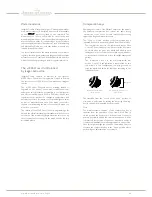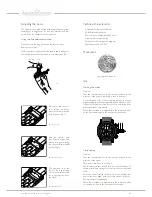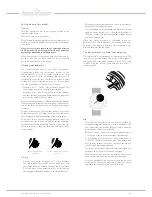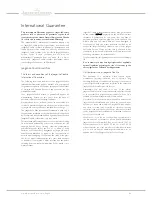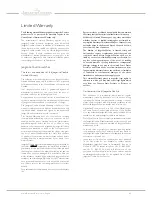
Jaeger-LeCoultre Calibre 751.
Adjusting the clasp
The clasp of your watch is fitted with a length-change system
enabling you to lengthen or shorten your bracelet by 4 mm
on each side, for enhanced wearer comfort.
Using the fine adjustment system
Transition from the long position to the short position:
Remove your watch.
Hold your clasp open between the thumb and forefinger of
one hand, with the bracelet section in your other hand (fig. 1).
Technical characteristics
- Automatic movement, Calibre 751.
- 28,800 vibrations per hour.
- Power reserve : approximately 65 hours.
- Crown with compression key.
- Pushpieces with compression wing-nut.
- Water-resistant to 10 ATM.
Movement
Use
Starting the watch
Crown A
Turn the compression key to the «open» position in the
direction of the arrow. Crown «A» is then in position 1.
A few clockwise turns of the crown are enough to set the
watch running. It is then automatically wound when you wear
it. Please note that the crown does not lock on winding, even
when the watch is fully wound.
When the operation is completed, turn the compression key
to the «closed» position in the direction of the arrows.
Time setting
Crown A
Turn the compression key to the «open» position in the
direction of the arrow.
Then pull crown A out to position 3.
The movement is thus locked («stop seconds» function). To
enable precise time setting in seconds, stop the seconds hand
at 60.
Move the hands forward clockwise up to the desired time
and, on the hour signal, push the crown back to position 1.
The watch starts running again.
When the operation is completed, turn the compression key
to «closed» position in the direction of the arrows.
Lift up the clasp cover so
as to release the tipover
part of the bracelet section
from its groove (fig. 2).
Fig. 2 Long position
Push the tip-over part
your bracelet section and
place it in its groove, facing
the opposite way its initial
position (fig. 3).
Fig. 3 Shortened position
The transition from the
short to the long position
is done in the same manner,
but in the opposite direc-
tion (fig. 4).
Fig. 4 Extended position
Fig. 1
1 2 3
M
aster
C
oMpressor
C
hronograph
- English
3/6


